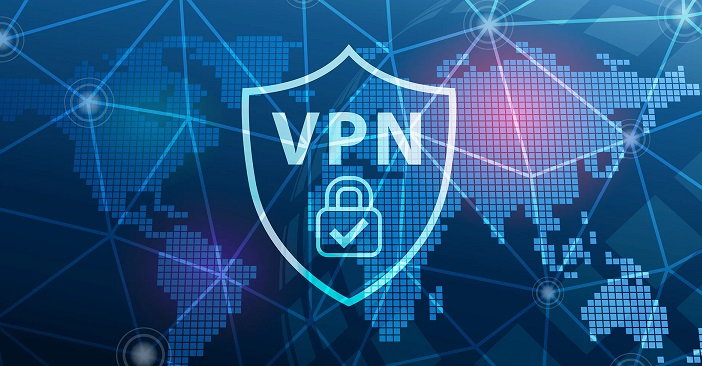Protection encrypts your information, both online and offline. Cybersecurity is indispensable, which is made possible with Two-factor Authentication and VPN. The internet has changed and transformed our lives in many ways. As the number of global network users are keep on increasing day by day, protection and privacy of network access is also decreasing where VPN comes to the rescue.

What Is A VPN?
“A private networking is a happy computing”. A VPN is a “Virtual Private Network”, a surfing toolkit that creates a virtual network between your device connected to the web. VPN acts as a warrior that shields your browsing history, Wi-Fi connections, and gives access to region-restricted websites.
A computer’s IP address, Wi-Fi password, software, and hardware protection against data theft are inevitable to ensure 360 degrees of privacy. VPN also guarantees encryption where it gives private network from the public service provider.
Why Do I Need a VPN?
Some of the browsers with VPN are Opera, Google Chrome, Epic, Brave, Chrome OS, Android Browser, Tor Browser, UR Browser, etc. Some of the browsers also have built-in VPN. You definitely need a VPN because of the following reasons:
- To hide your browsing history from any organizations.
- To get rid of bandwidth throttling.
- To unlock entertainment with high accessibility.
- To get access to restricted websites.
- To communicate with high privacy.
- To be anonymous on any sites.
- To get privacy over a wide public Wi-Fi.
- To perform bandwidth-heavy activities like downloading large files easily.
- To use Torrent securely.
VPN should be a part of your networking and browsing because of the following five reasons:
1. Increases Speed
Everything in this world is instant whether it’s food or even your payment. Browsing is sometimes slower because of network issues or web traffic. VPN solves this delay by acting as a tunnel between the cloud and your networking, which speeds up your processing.
2. Increases Number of Servers
VPN is a consumer-oriented tool that has high latency. Latency is the time duration between the user’s action and the server’s reaction. Users are allowed to access more networks and servers at a time without any disruption. Cyberghost has more than 7,100 servers worldwide in more than 90 countries.
3. Geo-Independence
If you are traveling to other countries with strict internet access, you cannot get access to the internet automatically as it has enhanced firewalls and blocks your access to use their broadband access where VPN comes to the rescue by giving complete access to all the networks.
4. Affordability
Managed endpoint security and web hosting services in VPN are available at affordable costs with less than $10 in many sites like ExpressVPN, Private Internet Access, and many more with 30 days money-back guarantee and offers.
5. Mass Surveillance
Your Internet Service Provider (ISP) acts as a spy that keeps monitoring your access over the internet, where it also shares it globally for intelligence sharing alliances in most developed countries. Your activities and data are difficult to interpret and access by any other intelligence alliances when you have already installed a high-quality VPN.
How Does A VPN Work?
From Client software, in any remote location, the main office or your home is connected with Network Access Server (NAS) through a secure VPN connection to provide internet through a private or tunneling access without getting caught by any corporate, hackers or even the Government.
If you have no VPN on your device, the internet is accessed through your Internet Service Provider (ISP) without any encryption. But, if it has a VPN the Internet Service Provider (ISP) is encrypted on both sides namely. VPN client and the VPN server.
How To Choose The Right VPN
VPN’s need differs from person to person as some need it to do secure networking, some need to unlock all the websites, and some want to be anonymous. For choosing the perfect VPN of your choice the below criteria are out-listed:
- Check out the quality and make sure your priorities are perfectly matching the priorities of your chosen VPN. Usually people prefer NordVPN because it is quite popular due to its price.
- Compatibility is a key factor for any functionality and cross-checks whether it is accessible for your platform and the number of connections.
- A user-friendly platform with easy procedures to get started will also be easy to configure at any time.
- Check whether your locations are covered and not limited within a small circle.
- NordVPN is the best streaming VPN whereas Surfshark is available at a low cost, so it is your choice that serves as the deciding factor at the end.
- Ensure it has customer service and a money-back guarantee if you are not opting for it after a few days of use.
How to Set Up A VPN
Depending on your device, the way to set up your VPN differs from one to another. Windows has a built-in VPN with Point to Point Tunneling Protocol(PPTP). The Windows startup button search for VPN and select Set up a Virtual Personal Network (VPN) connection followed by mentioning the IP address.
Some of the free VPN to download and get started are:
- Hotspot Shield is available on all platforms.
- Windscribe is compatible with PC, browsers, Phones, TV, and Routers.
- ProtonVPN has unlimited data.
- Speedify has super-security with high speed.
You can also subscribe to VPN from any sites step by step:
- Purchase the subscription to any trusted VPN.
- Download the VPN software by agreeing to the terms and conditions.
- Enter the login credentials and choose Open VPN in the VPN protocol.
- Select the server location and get connected ASAP.
Conclusion
Every technology has its pros and cons. In VPN’s case, you can be tracked easily, and sometimes your network speed will be low, and some free VPN are also dangerous. So surf wisely and get started with the best VPN for happy networking.
















